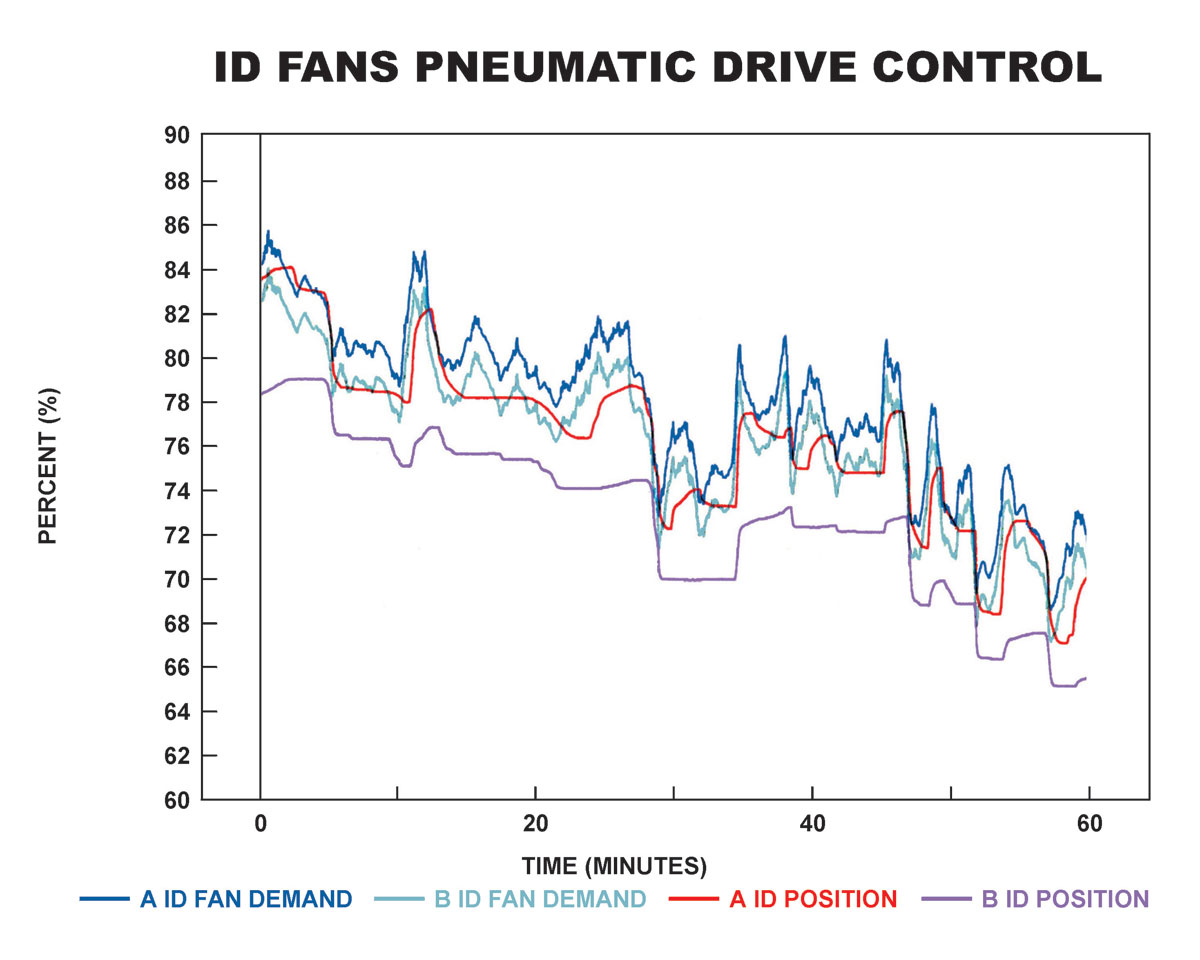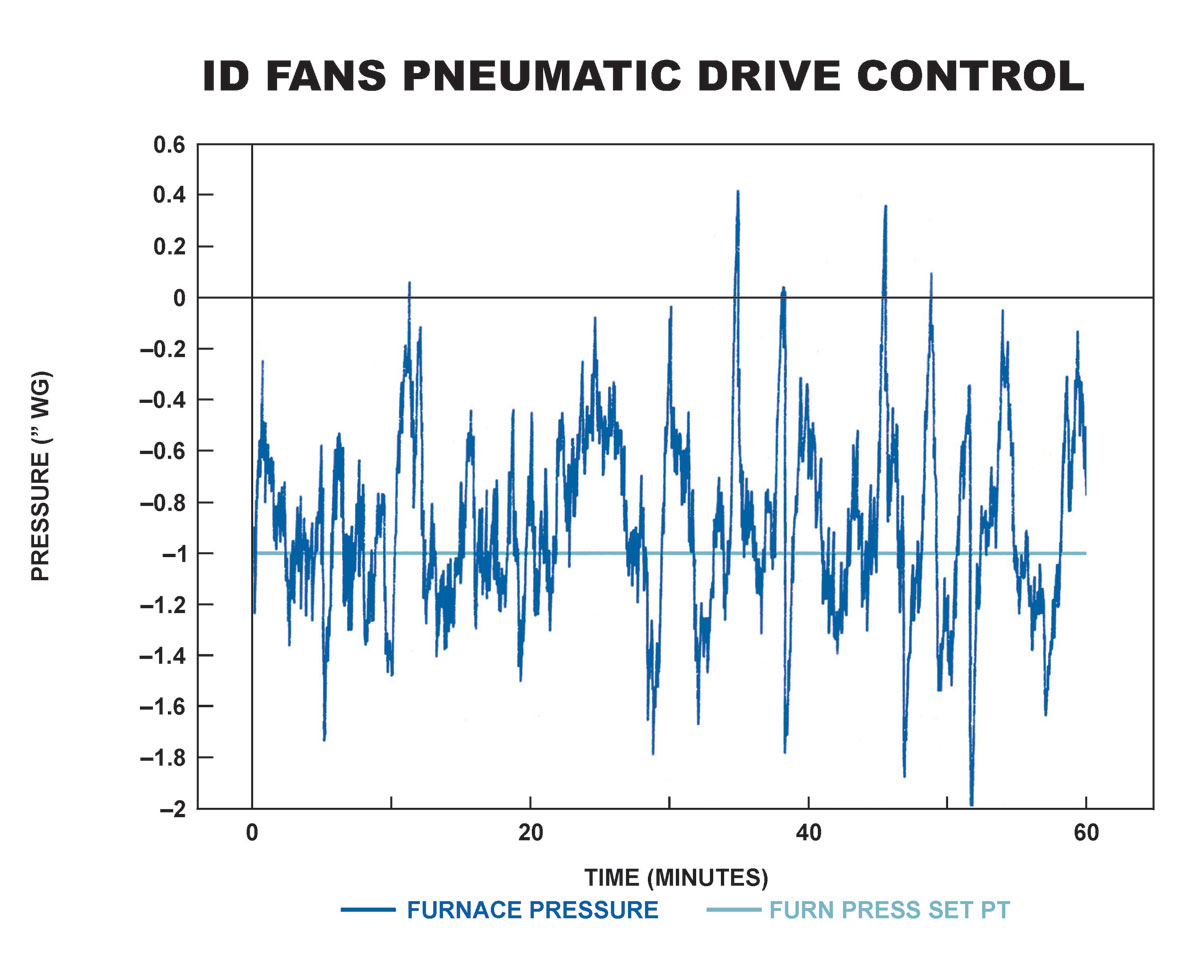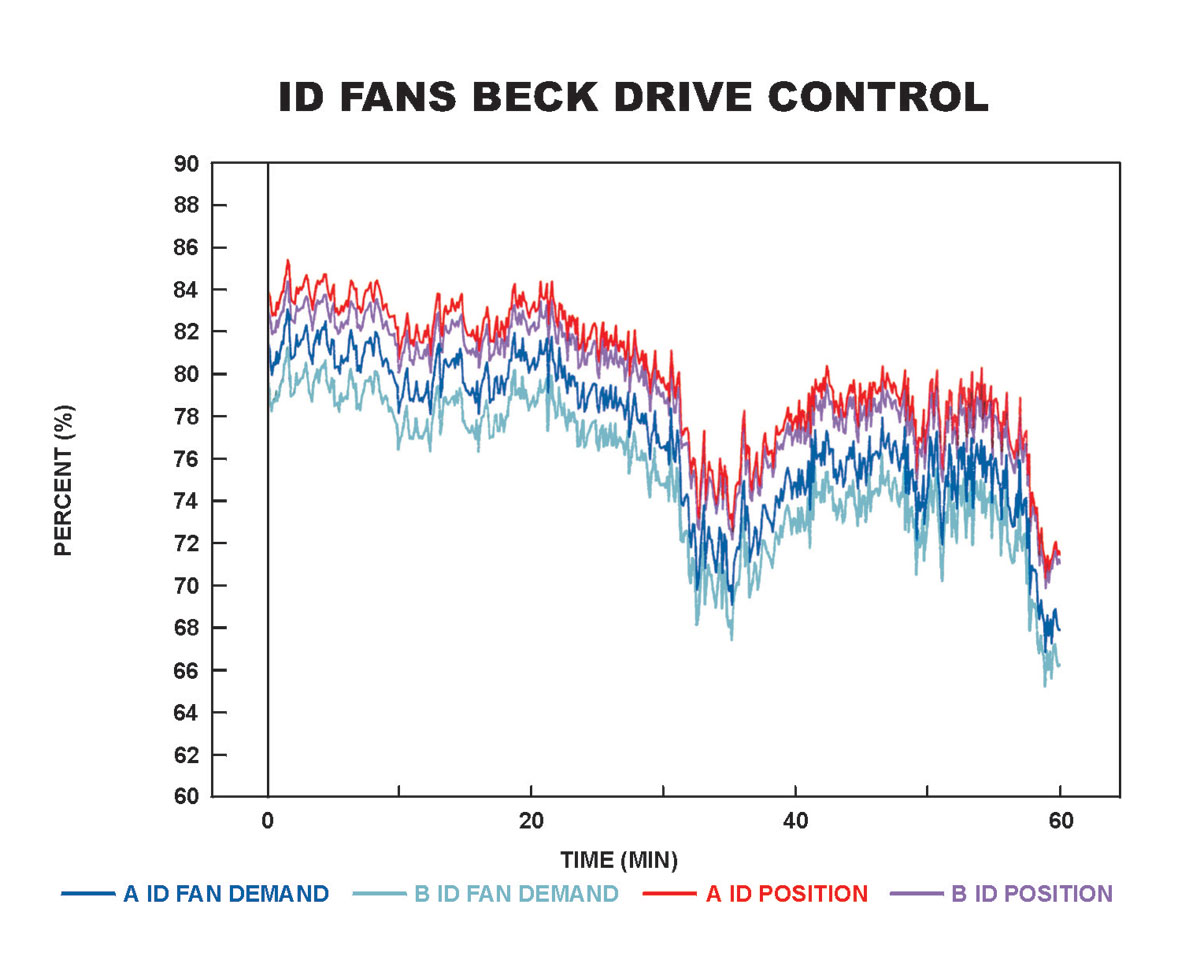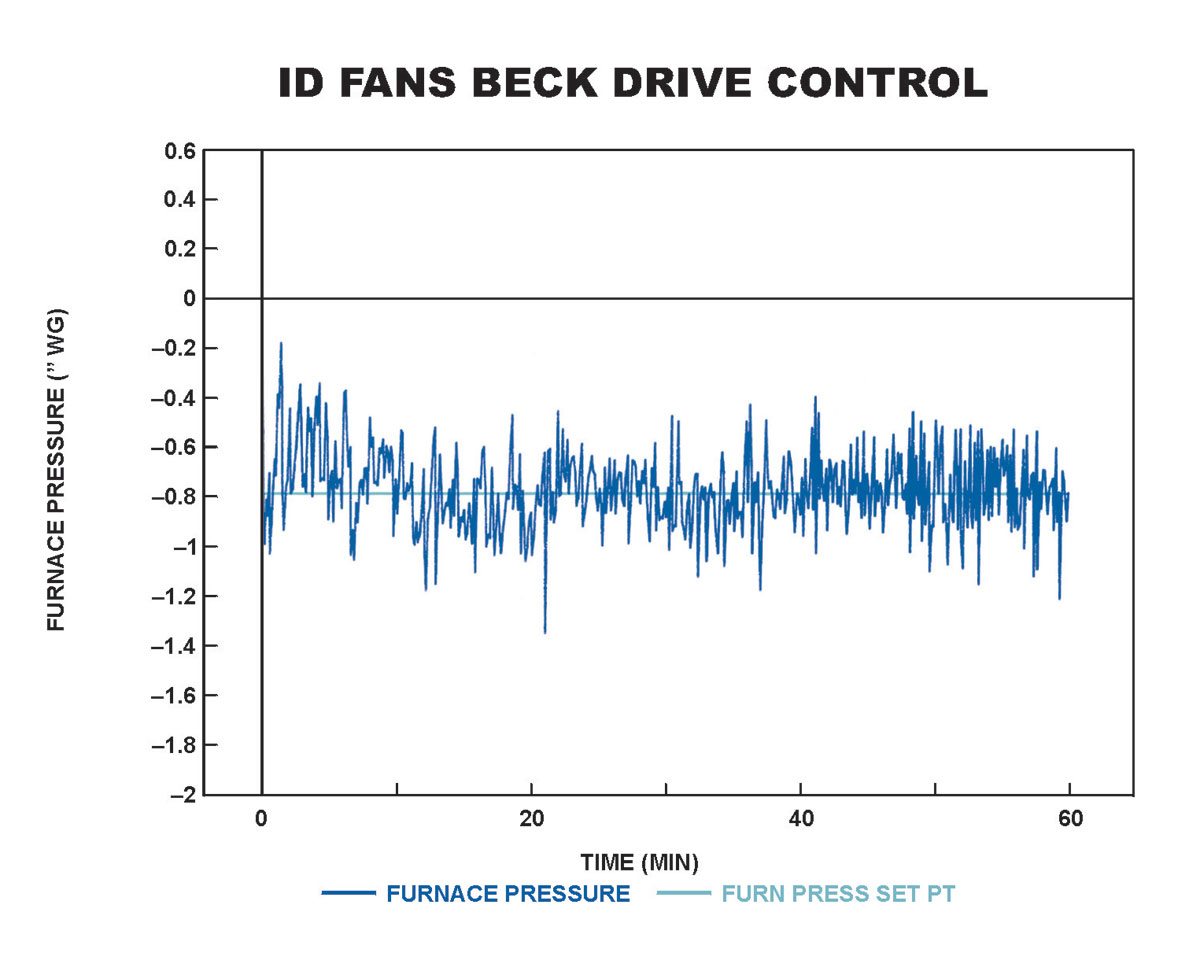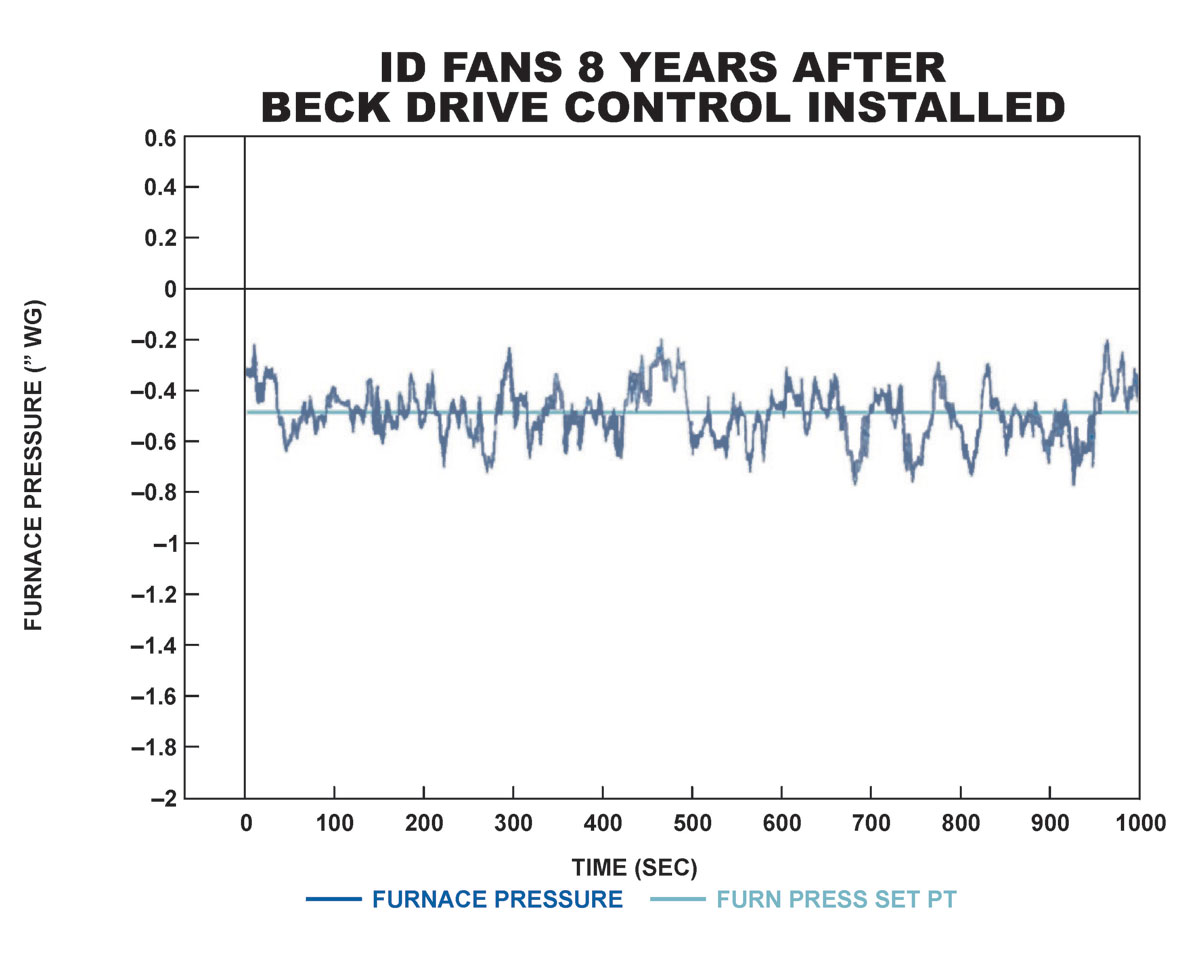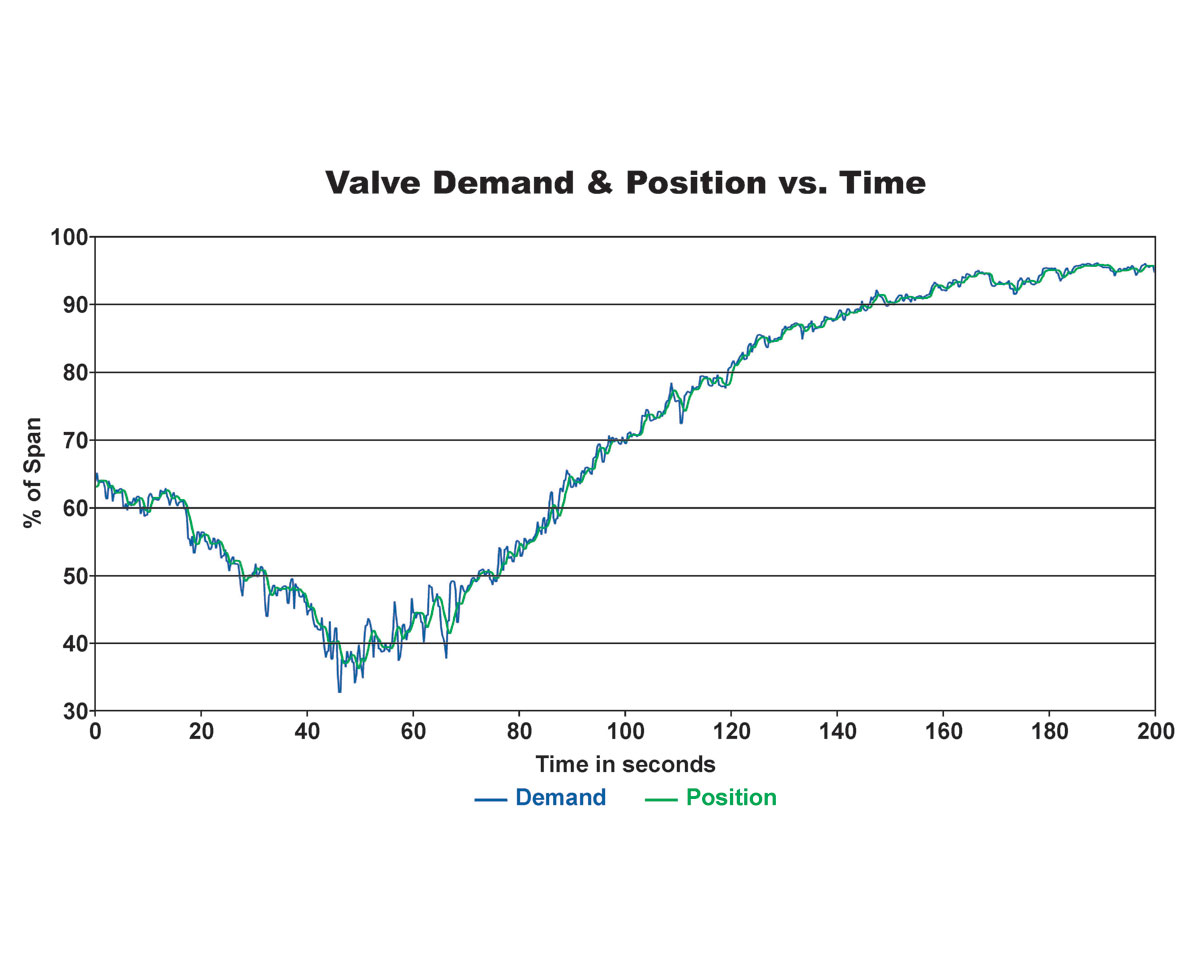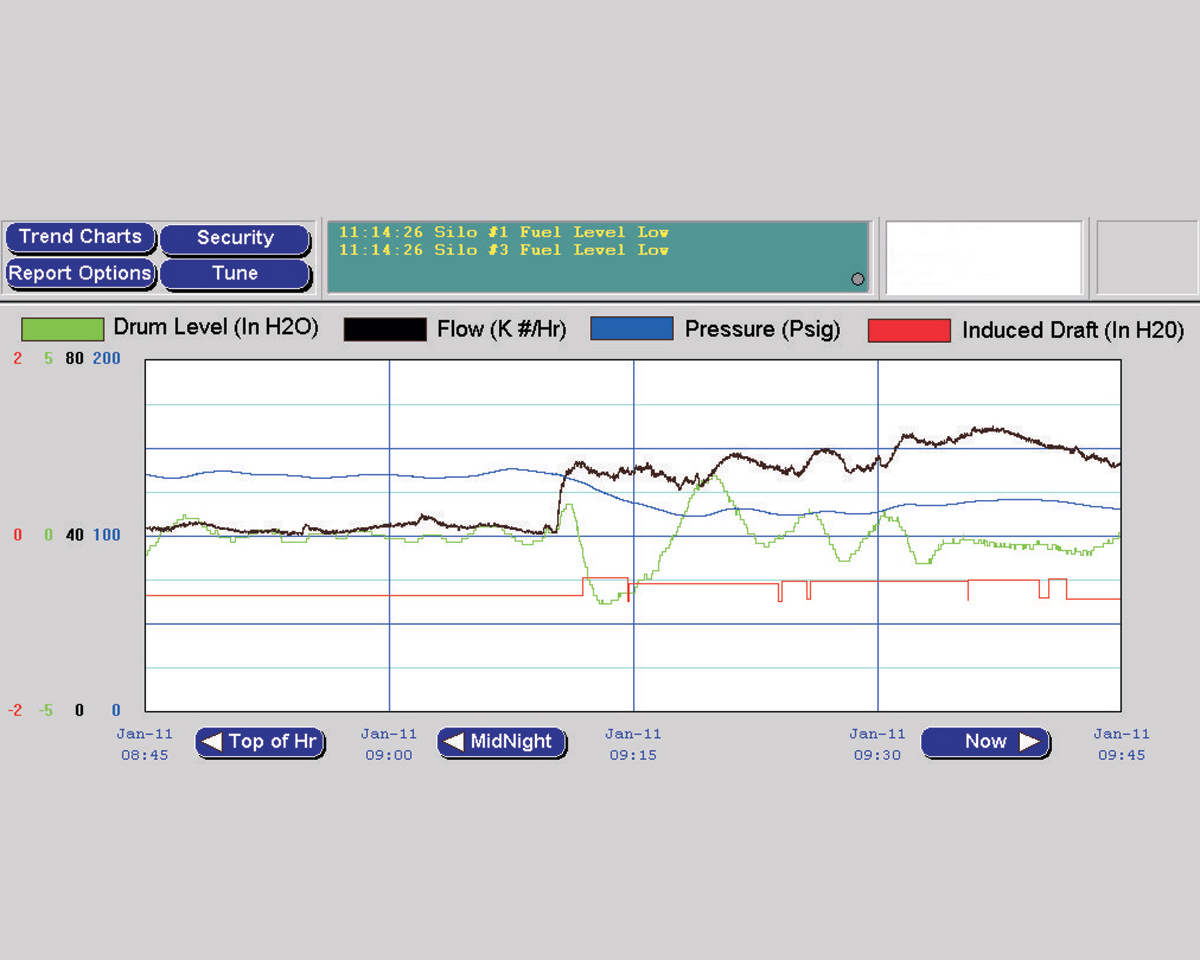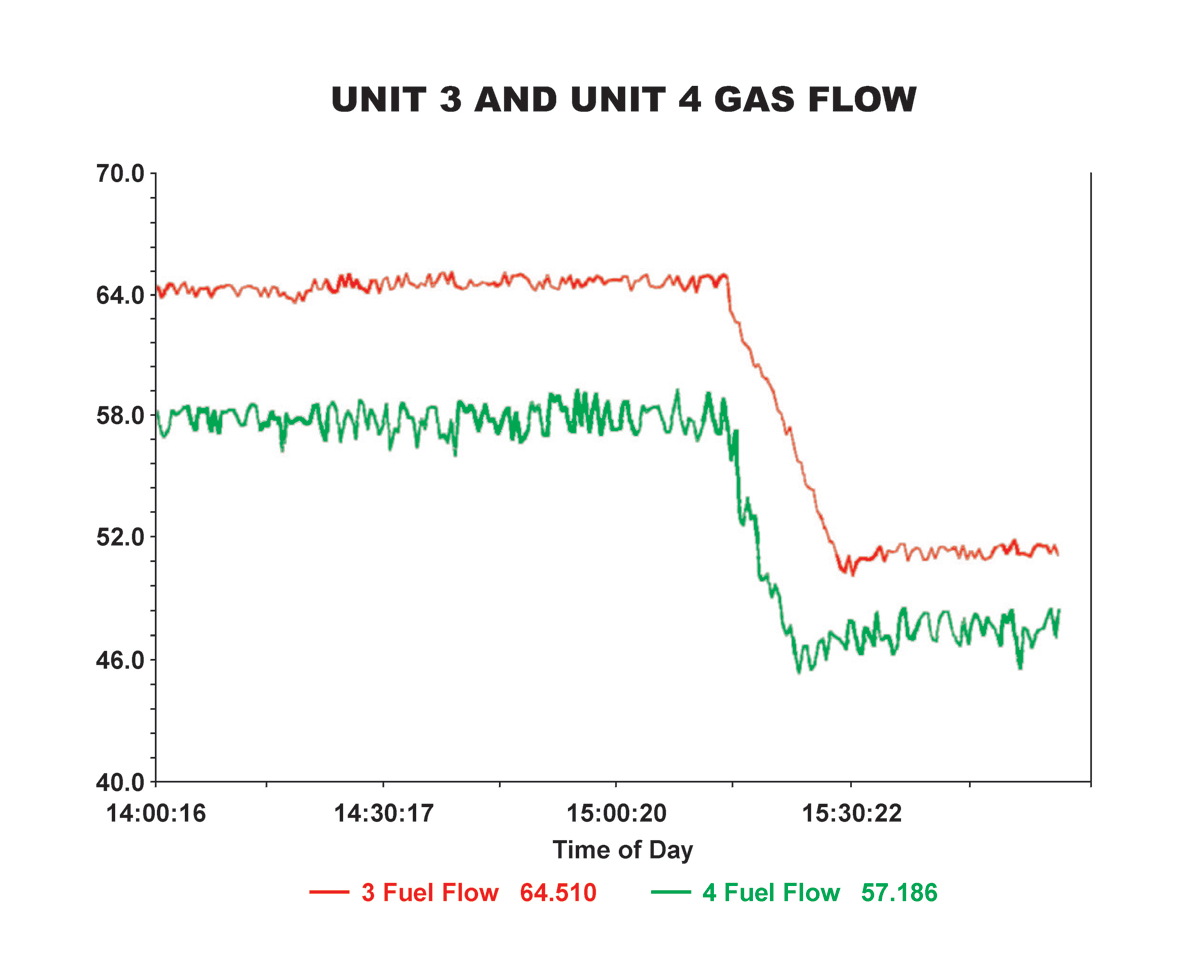FIELD PROVEN RESULTS
Utilities are continually investing in Beck actuators and realizing the long term benefit. Below are a series of data charts that were generated by one such Beck actuator user. Click on each in succession to enlarge the graphs.
Increasing Environmental And Economic Pressures Necessitate Control Improvements
Today’s industrial climate is characterized by ever increasing fuel costs, emission regulations, and global competition–optimizing boiler efficiency is critical to meeting these challenges. Whether producing process steam, plant power–or both– boilers need to maintain optimum combustion and feedwater control under a variety of changing conditions. In response, industrial plants are continually investing in control systems and instrumentation to meet regulations, reduce costs, and avoid costly trips and outages. There is no end to this trend in sight.
BOILER ACTUATORS FROM BECK
Hundreds Of Boilers Are Benefiting From Beck Drives … And The Number Is Growing
Investments in advanced control instrumentation and logic are very necessary, but are only as effective as the precision, repeatability and responsiveness of the valves and dampers. Industrial boiler owners and operators, who understand the importance of the valve and damper control hardware, replace pneumatic actuators with Beck Electronic Control Drives. In fact, Beck actuators are installed on modulating applications on over 600 industrial boilers of all sizes and styles. In addition to industrial applications, Beck actuators are modulating the valves and dampers on over 1,000 electric utility boilers. And, the number of boiler installations is continually growing.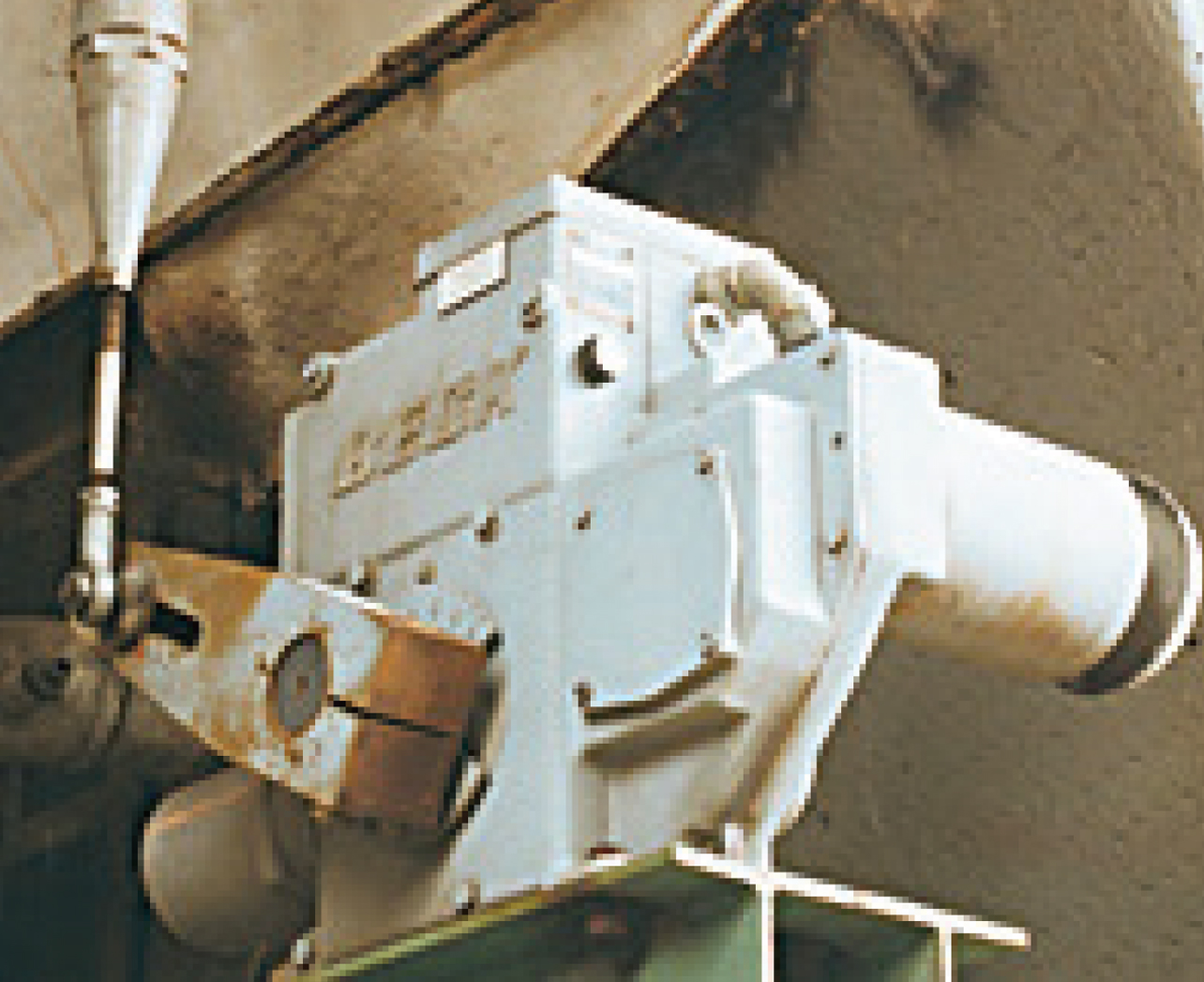
Damper And Valve Actuation Is Key To Improved Boiler Control And Efficiency
In spite of the critical role of boiler control valves and dampers with respect to efficiency, safety and reliability, their performance is often ignored. In many cases, actuator problems tend to be addressed only after a serious or complete failure occurs. The rest of the time, poor performance goes undetected, or is simply tolerated, while more visible problems receive attention. Boiler valve and damper actuators are a leading source of boiler control problems. Pneumatic actuators are highly susceptible to stick/slip response, excessive dead time, inconsistent performance with changing conditions, and performance degradation over time. As a result, pneumatic actuation simply cannot provide the level of control performance provided by Beck actuators. Similarly, typical electric actuators are poorly suited for active boiler control since most are limited by motor duty cycles, provide less accurate positioning capabilities, and are less reliable–especially in the harsh operating conditions for which Beck actuators are designed.
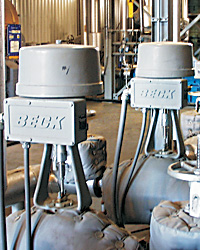
All Types Of Boilers Benefit
Whether a boiler is large or small, subject to severe load swings or base-loaded, Beck actuators provide the best possible valve and damper control. Some of the biggest benefits are realized on boilers subject to extreme load swings. In these cases, Beck actuators have shown that the instantaneous response capability, without overshoot, provides exceptionally stable and fast load changes. Likewise, boilers with active loads or other external disturbances benefit from the actuator’s ability to track a demand signal closely, without modulation restrictions and performance inconsistencies. Improving positioning, while eliminating dead time and overshoot, always results in better process control. Loops not only perform better, but also are easier to tune, stay tuned longer, and are more tolerant of varying conditions.
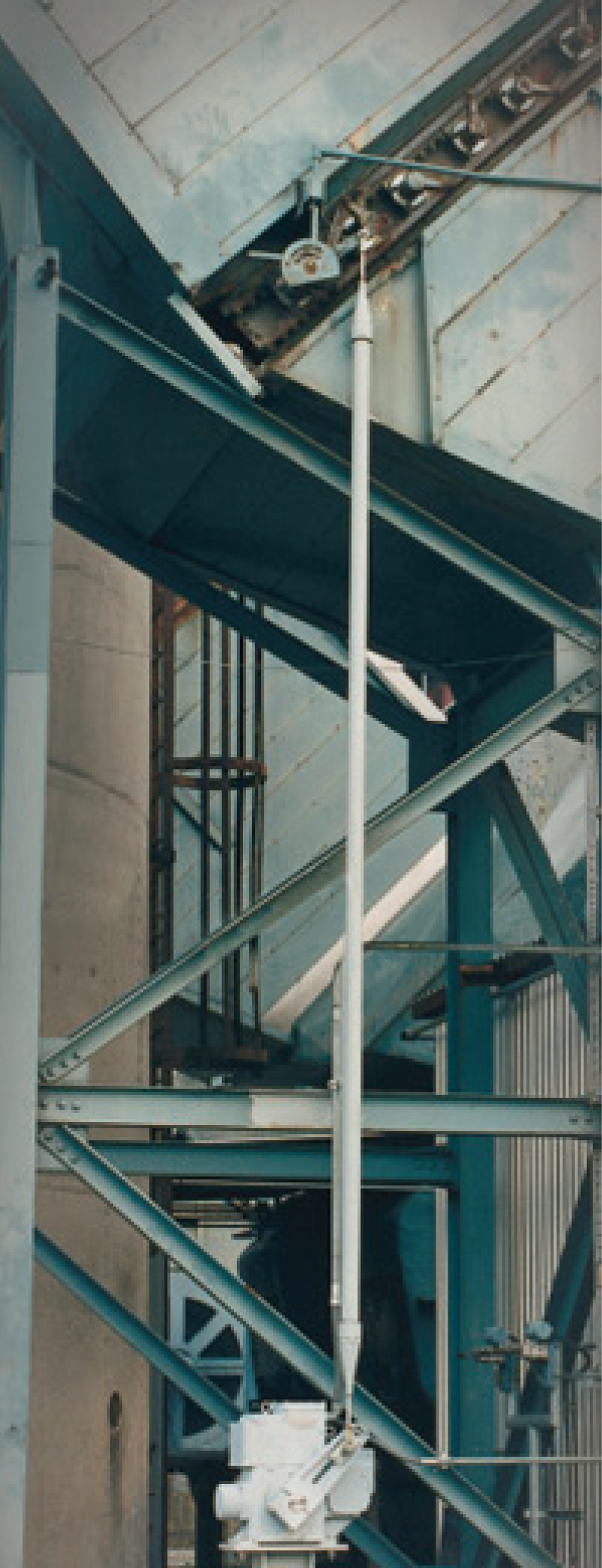
Beck Drives Improve Control And Eliminate Typical Actuator Problems
Why do Beck actuators improve control and eliminate the inherent problems of pneumatic actuators and typical electric actuators?
-
Beck actuators respond to a modulating controller demand signal instantaneously, regardless of changing loads and conditions. Therefore, Beck actuators will not stick or slip like pneumatic actuators, thus eliminating dead time and
position overshoot. - Beck actuators track the controller demand signal closely under closed-loop conditions, with resolution unmatched by pneumatic and typical electric actuators, ensuring responsive, tight, and stable process control.
- Beck actuators provide consistent control over time with virtually no maintenance requirements.
- Beck actuators eliminate the dependence on costly and unreliable air systems, thus eliminating problems like freezing and contamination.
- Weather, dust, dirt, and temperature (-40 to 185° F.) conditions do not affect performance.
- The extreme ruggedness and quality of Beck actuators simply means that they will outlast and outperform other actuators, thus minimizing unit trips and downtime.
